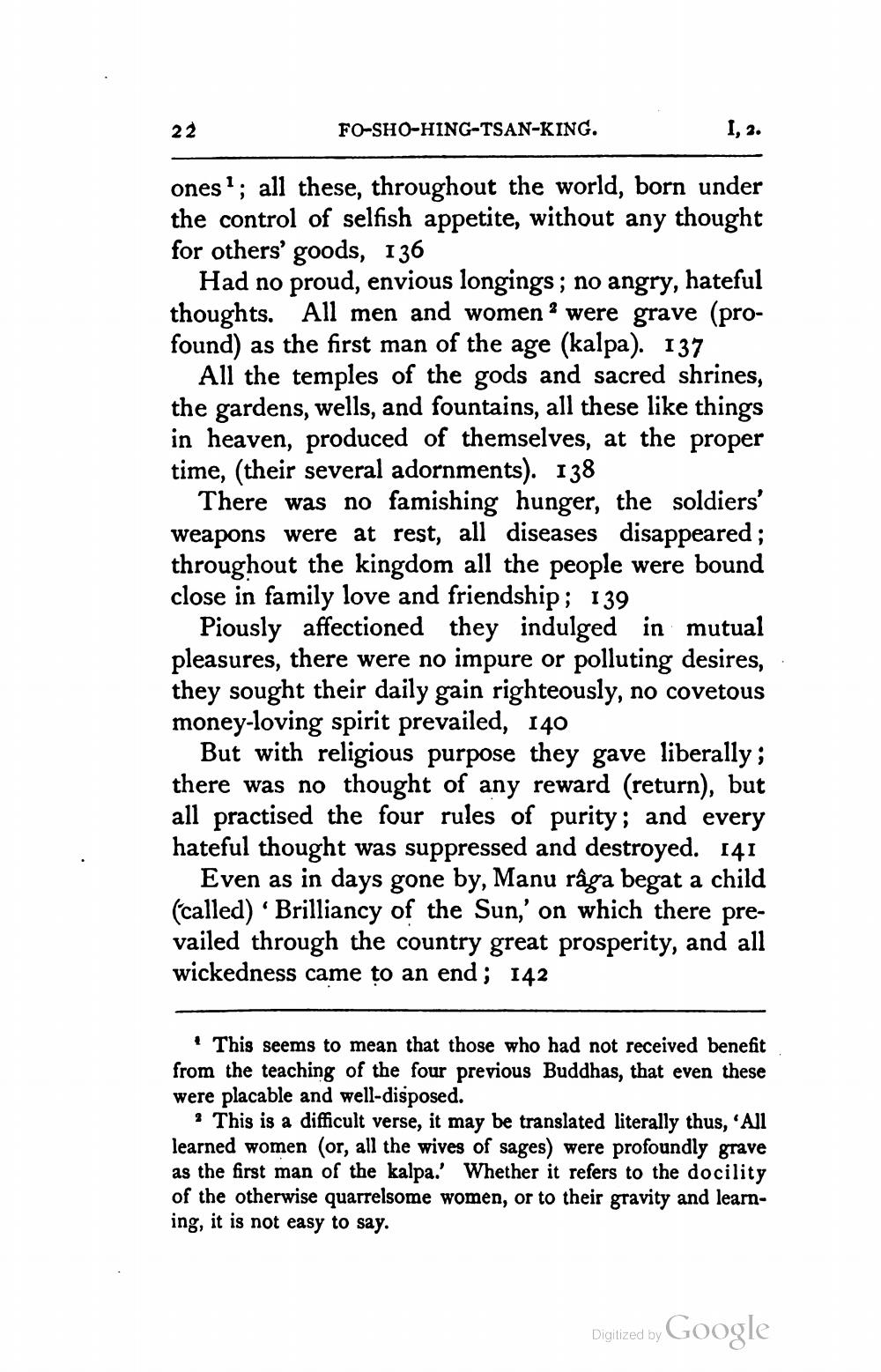________________
22
FO-SHO-HING-TSAN-KING.
1,2.
ones?; all these, throughout the world, born under the control of selfish appetite, without any thought for others' goods, 136
Had no proud, envious longings; no angry, hateful thoughts. All men and women were grave (profound) as the first man of the age (kalpa). 137
All the temples of the gods and sacred shrines, the gardens, wells, and fountains, all these like things in heaven, produced of themselves, at the proper time, (their several adornments). 138
There was no famishing hunger, the soldiers' weapons were at rest, all diseases disappeared; throughout the kingdom all the people were bound close in family love and friendship; 139
Piously affectioned they indulged in mutual pleasures, there were no impure or polluting desires, they sought their daily gain righteously, no covetous money-loving spirit prevailed, 140
But with religious purpose they gave liberally; there was no thought of any reward (return), but all practised the four rules of purity; and every hateful thought was suppressed and destroyed. 141
Even as in days gone by, Manu râga begat a child (called) · Brilliancy of the Sun,' on which there prevailed through the country great prosperity, and all wickedness came to an end; 142
! This seems to mean that those who had not received benefit from the teaching of the four previous Buddhas, that even these were placable and well-disposed.
* This is a difficult verse, it may be translated literally thus, ‘All learned women (or, all the wives of sages) were profoundly grave as the first man of the kalpa. Whether it refers to the docility of the otherwise quarrelsome women, or to their gravity and learning, it is not easy to say.
Digitized by Google




